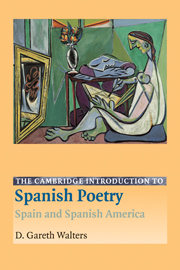Book contents
- Frontmatter
- Contents
- Preface
- Introduction
- 1 Poets and readers
- 2 The interrelationship of texts
- 3 The epic and the poetry of place
- 4 The ballad and the poetry of tales
- 5 Songs and sonnets – popular and learned poetry
- 6 Love poetry
- 7 Religious and moral poetry
- 8 Satire, burlesque and poetry as celebration
- Appendix: Chronological list of poets cited
- Notes
- Bibliography
- Index of names
- Subject index
8 - Satire, burlesque and poetry as celebration
Published online by Cambridge University Press: 05 June 2012
- Frontmatter
- Contents
- Preface
- Introduction
- 1 Poets and readers
- 2 The interrelationship of texts
- 3 The epic and the poetry of place
- 4 The ballad and the poetry of tales
- 5 Songs and sonnets – popular and learned poetry
- 6 Love poetry
- 7 Religious and moral poetry
- 8 Satire, burlesque and poetry as celebration
- Appendix: Chronological list of poets cited
- Notes
- Bibliography
- Index of names
- Subject index
Summary
The previous two chapters had a clear thematic basis and were concerned with subjects that relate to identifiable and universal human experiences. As a result the poems that figured in them could be said to have a pretext, if not necessarily in the sense that the poem depends upon a prior happening (which is, more precisely, a pretext) that is ‘translated’ into the text, then insofar as the poem is prompted by considerations that are outside it. Merely to make this point may strike some as surprising: does not all poetry have a pretext in either or both senses of the word? The aim of this chapter is to address this question – to consider the possibility that poetry, rather than than having to be ‘about something’, whether love, time or death, can be about itself: that it can be its own subject and thus its own justification.
The genre that supplies a suitable way-in to this issue is satire. Satire may at first sight lead in the opposite direction, since it is most clearly about something other than itself. As it involves criticism and mockery, however, satire connects both with the moral vision that was the concern of the previous chapter and the ludic impulse that will be an important factor for an assessment of the viability of the poem as a thing in its own right. What distinguishes the satirist from the moralist is the importance of ridicule and irony.
- Type
- Chapter
- Information
- The Cambridge Introduction to Spanish PoetrySpain and Spanish America, pp. 178 - 198Publisher: Cambridge University PressPrint publication year: 2002



